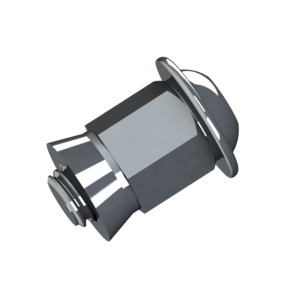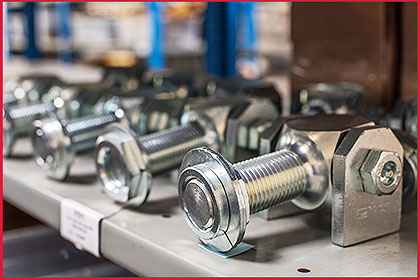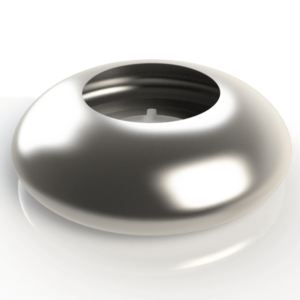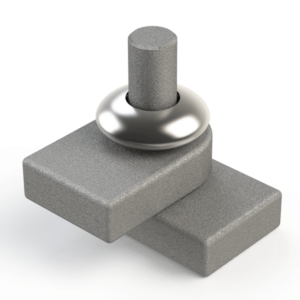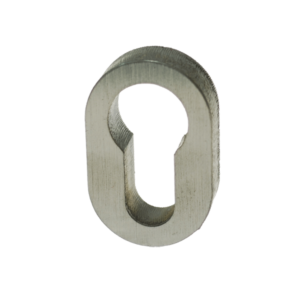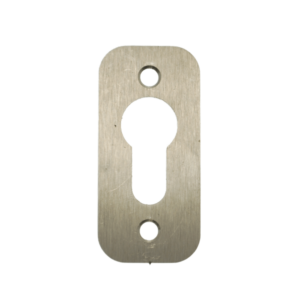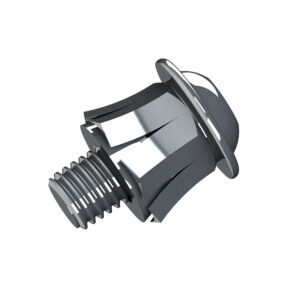In a world where security is paramount, every detail matters. High-security bolts, often underestimated in their significance, play a crucial role in fortifying structures and protecting valuable assets. This comprehensive guide delves into the realm of high-security bolts, unravelling their features, applications, and the unparalleled security they offer.
Understanding High-Security Bolts
Advanced Design: High-security bolts are engineered with advanced design features that make them resistant to tampering and unauthorized access.
- Materials: These bolts are crafted from premium materials such as hardened steel or alloys, enhancing their strength and durability.
- Unique Keying Systems: Many high-security bolts come with unique keying systems, making duplication challenging and ensuring that only authorized individuals have access.
Applications of High-Security Bolts
- Commercial Buildings: Safeguarding offices, warehouses, and commercial establishments from unauthorized entry.
- Residential Security: Enhancing home security by fortifying doors, windows, and other access points.
- Critical Infrastructure: Protecting critical infrastructure such as power plants, data centers, and communication facilities.
- Automotive Security: Securing vehicles against theft and unauthorized access, commonly used in high-end vehicles.
- Government Facilities: Providing an extra layer of security to government buildings and installations.
Features that Set High-Security Bolts Apart
- Tamper Resistance: High-security bolts are designed to resist tampering, including picking, drilling, and other unauthorized manipulation attempts.
- Bump Resistance: These bolts often incorporate features to resist bumping, a technique used by some intruders to open conventional locks.
- Key Control: Unique keying systems and restricted keyways ensure tight control over who has access to the keys, reducing the risk of unauthorized duplication.
- Drill Resistance: Hardened materials and specialized construction make high-security bolts resistant to drilling, a common method used by burglars.
Choosing the Right High-Security Bolt
- Assess Security Needs: Evaluate the specific security requirements of your property or facility to determine the level of security needed.
- Consult Security Professionals: Seek advice from security experts or locksmiths who can assess your needs and recommend the most suitable high-security bolt options.
- Consider Keying Systems: Choose a high-security bolt with a keying system that aligns with your security goals, whether it’s a restricted keyway or a patented key system.
- Evaluate Materials: High-quality materials such as hardened steel or alloys contribute to the durability and effectiveness of the bolt.
Installation and Maintenance
- Professional Installation: Ensure high-security bolts are installed by trained professionals to guarantee proper functionality and security.
- Regular Maintenance: Schedule regular maintenance checks to ensure that bolts are in optimal condition and functioning as intended.
- Upgrade as Needed: If security requirements change or if there are advancements in security technology, consider upgrading to newer high-security bolt models.
Understanding Security Screws
- Tamper-Resistant Design: Security screws are specifically designed to resist tampering, making it challenging for unauthorized individuals to remove or manipulate them.
- Diverse Types: There are various types of security screws, each with its unique design, including Torx, Tri-wing, Spanner, and One-way screws, adding an extra layer of protection.
- Specialized Tools Required: Unlike standard screws, security screws require specialized tools for installation and removal, enhancing their resistance to tampering.
Applications of Security Screws
- Commercial Buildings: Securing access points, windows, and doors to prevent unauthorized entry.
- Public Spaces: Protecting public infrastructure, signage, and equipment from tampering or vandalism.
- Manufacturing: Used in manufacturing processes to secure components, ensuring product integrity.
- Retail Security: Safeguarding retail displays, cash registers, and high-value merchandise from tampering or theft.
- Critical Infrastructure: Essential for securing critical infrastructure, ensuring the integrity of systems and equipment.
Features that Set Security Screws Apart
- Tamper Resistance: The primary feature is resistance to tampering, making it challenging for individuals without the appropriate tools to remove or manipulate the screws.
- Specialized Heads: Unique head designs, such as the star-shaped Torx or the triangular Tri-wing, require matching tools for installation and removal.
- One-Way Design: Some security screws have a one-way design, meaning they can be installed but not easily removed, providing a permanent solution in certain applications.
Choosing the Right Security Screw
- Assess Security Needs: Evaluate the specific security requirements of your property, project, or equipment to determine the appropriate level of tamper resistance.
- Consider Environment: Factor in the environment in which the screws will be used. For outdoor applications, corrosion-resistant materials may be necessary.
- Consult with Security Experts: Seek advice from security professionals or suppliers specializing in security screws to ensure you select the most suitable option.
- Diverse Types for Specific Needs: Different types of security screws serve specific purposes. Choose the type that aligns with your security goals and the level of deterrence required.
Features that Set Security Fasteners Apart
- Tamper Resistance: The primary feature is resistance to tampering, achieved through unique designs that prevent standard tools from removing the fasteners.
- One-Way Installation: Some security fasteners are designed for one-way installation, meaning they can be easily installed but are challenging to remove without specialized tools.
- Specialized Heads: Security fasteners often feature heads with unique shapes or patterns, such as Torx, requiring matching tools for installation and removal.
Choosing the Right Security Fastener
- Evaluate Security Needs: Assess the specific security requirements of your project or property to determine the level of tamper resistance needed.
- Consult Security Experts: Seek advice from security professionals or suppliers specializing in security fasteners to ensure you choose the most suitable option.
- Consider Environmental Factors: Factor in the environmental conditions where the fasteners will be used, choosing corrosion-resistant options for outdoor applications.
- Diverse Types for Specific Needs: Different types of security fasteners serve specific purposes. Choose the type that aligns with your security goals and the level of deterrence required.
Choosing Clutch Head Screws for Security Needs
- Assess Security Requirements: Evaluate the specific security needs of your project or property to determine the appropriate level of tamper resistance required.
- Consult Security Experts: Seek advice from security professionals or suppliers specializing in fasteners to ensure you choose the most suitable clutch head screws for your application.
- Consider Environmental Factors: Account for the environmental conditions where the screws will be used, opting for corrosion-resistant options for outdoor applications.
- Installation Expertise: Ensure that clutch head screws are installed by professionals to guarantee proper functionality and maximize their tamper resistance.
Elevating Security Standards
High-security bolts are the unsung heroes of robust security systems, providing a formidable defence against unauthorized access. By understanding their features, applications, and the critical role they play, individuals and organizations can make informed choices to fortify their security.
Investing in high-security bolts is not just a practical choice; it’s a commitment to safeguarding what matters most.
FAQs: Demystifying High-Security Bolts
- How do high-security bolts differ from standard bolts? High-security bolts feature advanced designs, materials, and key systems that make them resistant to tampering and unauthorized access, setting them apart from standard bolts.
- Can high-security bolts be used in residential settings? Yes, high-security bolts are commonly used in residential settings to enhance home security by fortifying doors, windows, and other access points.
- Do high-security bolts require special installation? Professional installation by trained locksmiths or security experts is recommended to ensure the proper functionality and security of high-security bolts.
- What makes high-security bolts drill-resistant? High-security bolts are often made from hardened steel or alloys, making them resistant to drilling, a common method used by burglars to compromise standard locks.
Are high-security bolts suitable for automotive security? Yes, high-security bolts are used to secure vehicles against theft and unauthorized access, especially in high-end and luxury vehicles.
What Signet Locks do:
Security Collars: Push-on security collars prevent gates with a hook and eye hinge being lifted off. Being a stainless steel cap, they also offer a pleasing aesthetic look to the hinge and an overall professional finish to the gate. Once they are pushed onto the gate hook, protrusions inside the security collars grip the metal to prevent removal.
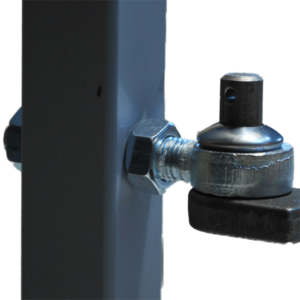
Security Escutcheons: We offer weld-on and screw-on versions. These are designed to protect the eurocylinder, making the lock more secure.
Expanding Fasteners: These are provided with gate keeps and the gate locking drop bolt as fixings. They expand as they are being tightened to securely fix the keep or the drop bolt to the post. Have a closer look at the products that are provided with expanding fasteners.
